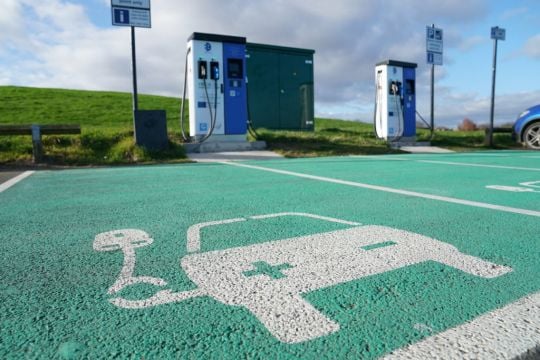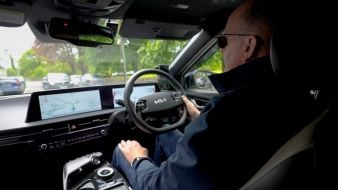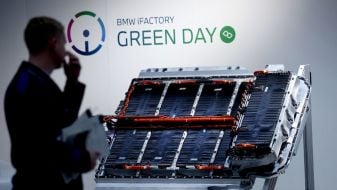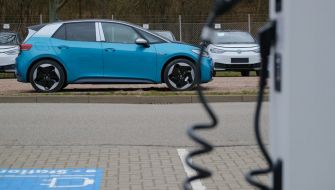There are plenty of bar stool experts when it comes to electric cars and batteries. So Breakingnews.ie is going to try and break down the misinformation, half-truths, and plain old panic that surrounds electric cars right now. One such statement that's frequently encountered is:
“EVs have limited range and are slow, and there’s not enough charging infrastructure in Ireland. Charging an EV takes too long, weather is an issue, and lots of EVs charging at once will overload the grid.”
Okay, there’s certainly some truth here.
There’s not enough charging infrastructure in Ireland, and current EV owners and buyers are being asked to take on faith that the Government will see to it that this changes.
That said, as Stephen McGrath from Peugeot Ireland points out: “There are 2,400 public charging points as of February 2024, and ZEVI - the Zero Emissions Vehicle Initiative, tasked with overseeing the electric car changeover - is working to have fast chargers at every 60km on motorways.”
Indeed, the Government and ZEVI don’t have a choice in that last bit: it’s EU legislation. So, things will get better in that regard and we just have to hope that they get better quickly enough.
Equally, there needs to be some perspective here. Just as there are combustion-engined cars which are fast or slow, so too there are EVs which have short ranges and long ranges.
“Range is improving all the time. The new Fiat 600e has a WLTP range in excess of 400kms which is more than enough for the average Irish commuter. For longer journeys, planning your route and knowing where the public chargers are along your journey is key,” said Fiat Ireland’s Ciaran Cusack.
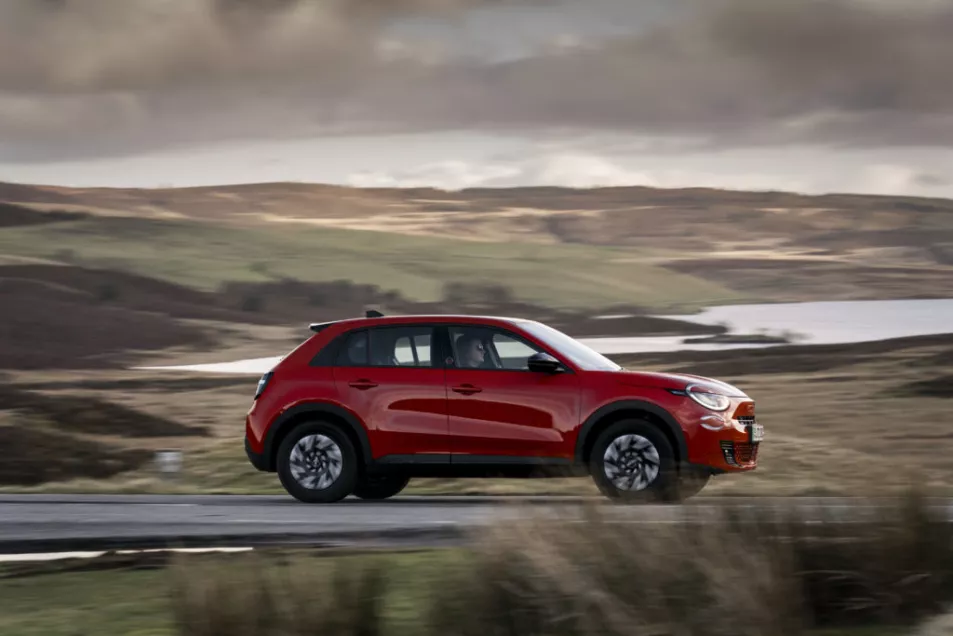
“It is important that drivers also understand factors that affect range such as colder temperatures and speed. However, this really is only an issue for longer journeys and not for everyday driving.”
Cusack is right — EV range does tend to dip on very cold days, especially once the temperature is into single digits, but research from Norway shows that the average range loss is around 21 per cent, which will only hurt you in most EVs if you’re planning to drive more than 250km or so in one go.
Don’t forget that temperature also affects combustion cars, driving their fuel consumption up — you just pay for that in cash, rather than in extra charging time.
Equally, there are some truly long-range electric cars around now.

“For example, the all new Q6 e-tron, the first Audi BEV model to be produced on our high-tech new PPE electric car platform, offers the highest range in Audi’s current electric portfolio thanks to the newly developed high-voltage battery,” says Audi Ireland’s Damien O’Sullivan.
“The Audi Q6 e-tron is not only the benchmark in terms of range with more than 620 km available, but also in terms of its charging performance. Thanks to the 800-volt technology and a maximum charging capacity of 270kW as standard, short charging stops are possible. Up to 255 km can be recharged in just 10 minutes at an appropriate high-power charging station. The state-of-charge (SoC) increases from ten to 80 percent in around 21 minutes.”
BMW’s Helen Westby has put her driving money where her mouth is when it comes to EVs, and criss-crosses the country every week in an all-electric car.

“I would say I had exactly the same anxieties about range and about charging vehicles when I arrived. I can honestly say, and it's not just because I'm the managing director for BMW Group Ireland, I can honestly say to you within weeks, that anxiety dissipated. I would say the majority of my journeys, I don't even think now about my range,” she said.
As Kia Ireland’s Ronan Flood says, a bit of practice soon gets drivers over the range hump. “It can take some time to understand how specific EV features such regenerative braking can enhance your range.
"Similarly, the Kia trip computer will average your driving efficiency over your last 20 journeys to give you your individual real world driving range. When you live with an EV, you quickly realise just how clever the technology is and confidence grows.
"If someone is considering an EV and hasn’t driven one before, we would encourage them to book a 48hr test drive with an electric Kia and experience this for themselves.”
The real nub of the range and charging issue is that most of us don’t actually take long journeys very much, and most of us will actually do almost all of our charging at home.
Fiat’s Ciaran Cusack says: “It is true that the public charging infrastructure in Ireland needs improvement, but it is slowly getting better. However, this should not deter most drivers from purchasing an EV as 80 per cent of car journeys in Ireland cover distances of 20km or less according to the SEAI, so once a home charger is installed, this will be where their car will be charged the majority of the time.”
Don’t worry about EVs causing brown-outs when they’re all plugged in at night either. In fact, EVs might actually be one of the best things to happen to Irish electricity production since the Ardnacrusha power station was built.
“All our EVs come as standard with a Vehicle to Device (V2D) feature meaning that the vehicle battery can act as a generator to power external devices. What’s more is our vehicles are compatible with Vehicle to Grid (V2G) which will be activated for Ireland soon” said Kia’s Ronan Flood.
“This technology allows for bi-directional charging between your car and house. This would mean that your vehicle can be charged via sustainable solar power during off peak times and then this power that’s stored in your vehicle battery can power your home during peak times to reduce the pressure on the grid.”
According to experts from SSE Airtricity, you don’t even strictly need the vehicle-to-grid tech for EVs to be helpful. Simply having a smart charger which can switch on or off depending on whether there’s peak demand or peak production on the grid can be a massive help, allowing the grid to be properly balanced and to even out demand as much as possible.
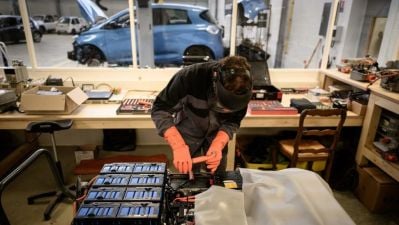
Currently, electric motoring doesn’t quite suit everyone - that’s why cars with regular old petrol or diesel engines are still on sale, and why there are plenty of hybrid and plug-in hybrids on the market.
Sit down and think about your driving and work out what’s best for you. On careful consideration, electric motoring might just suit you more than you think.
The EVs are getting better all the time, ranges are going up, and while it’s still only incremental improvements, the charging network is improving and expanding.
“We have invested heavily in electric vehicles and the digital platforms that support them," says VW Ireland’s Pierre Boutin. "As technology advances and electricity prices have dropped, buying and owning an EV has become more cost-effective than ever. There are substantial benefits to driving electric vehicles. This is born out by the fact that the vast majority of Irish motorists who switch to an EV do not want to go back.”
